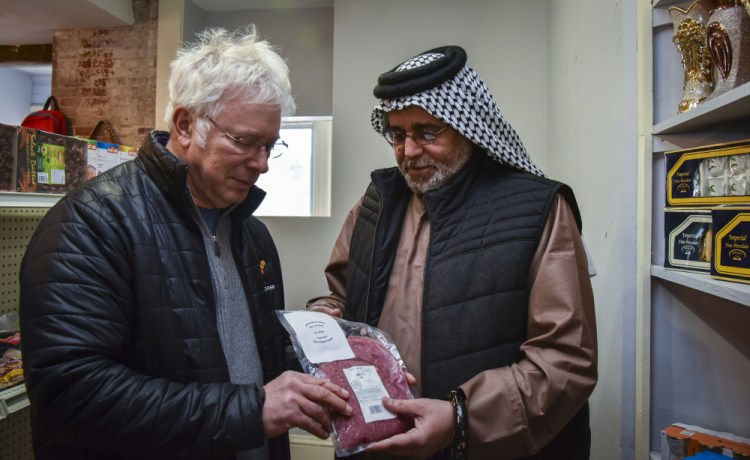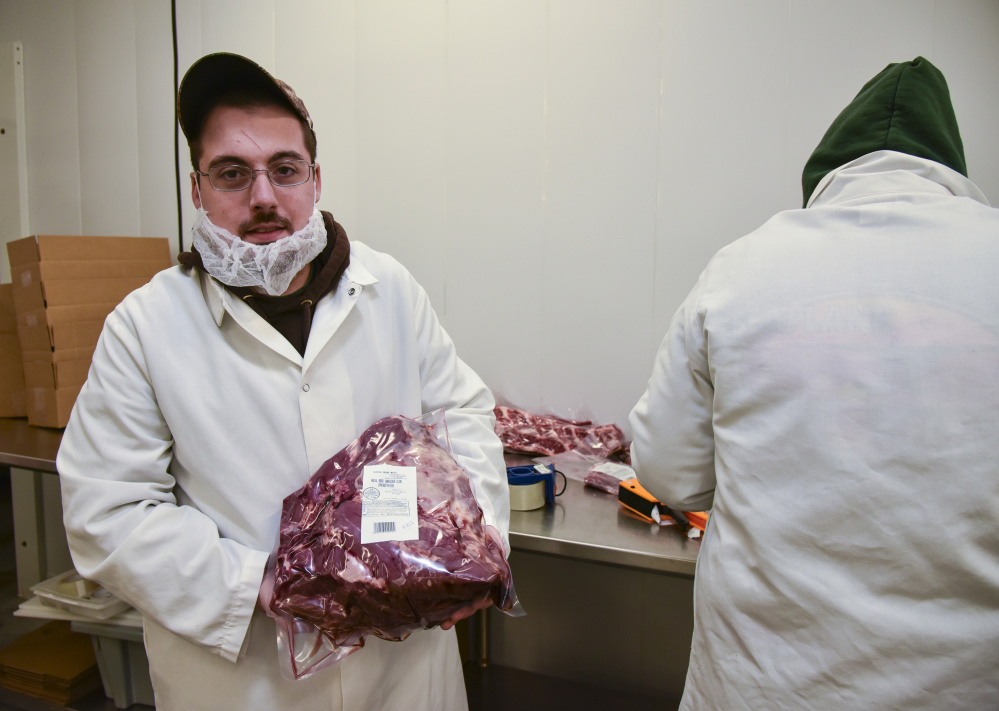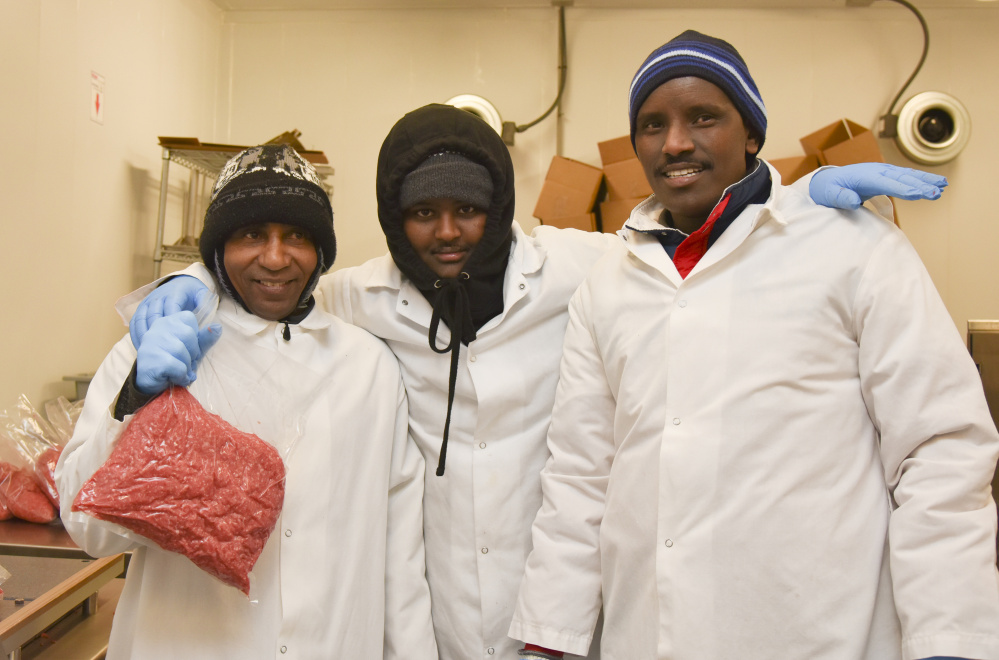HALLOWELL — For Joel Davis and Khalid Zamat, a chance encounter several months ago has launched new opportunities for both their businesses.
And that business relationship opened the door for Central Maine Meats to reach out to a new group of potential employees.
Davis is managing director of Central Maine Meats in Gardiner, and Zamat owns two Mainly Groceries stores, including one that opened just last week on Water Street in Hallowell. Through those stores, Zamat sells halal meat, which he gets from out of state.
At Central Maine Meats, Davis and his business partner, Bill Lovely, are operating a USDA-inspected slaughterhouse that’s helping to build the local food economy in central Maine. They work with Maine producers to process meat that otherwise would be sent out of state and to sell it to a wide range of customers. Because of its USDA designation, it can sell across state lines.
The meeting with Zamat showed him a new opportunity among Maine’s growing population of Muslims. A Somali community has settled in Lewiston, and several hundred Muslim families from a number of countries have settled in the Portland area. Augusta has an established Iraqi community, and families from Afghanistan and Syria have recently moved to the area.
“One of the things we recognized with the new immigrants is that they have special dietary habits, and we were approached by several places that wanted to provide for halal processed food,” Davis said.
“Halal” is the Arabic word for permissible, and it refers to anything that is permitted under Islamic law. When it comes to meat, it describes the process used to slaughter animals. First, the animals are blessed and then are killed by hand by a Muslim butcher.
Davis said he asked Zamat to find him a halal butcher, which Zamat did, but that was only the start of the process.
“As a USDA facility, we had to be authorized to bring in a non-employee to do the processing,” Davis said. The company applied for a special certification license, and received authorization last month.
Now Central Maine Meats is producing halal meat and it’s being distributed in Maine.
It’s a new opportunity for Zamat, who owns and operates Mainly Groceries in Augusta and Hallowell. Zamat had been getting his halal meat from distributors in Boston and Minnesota because he could find none locally.
Late last month, when he was celebrating the opening of his Hallowell store, Zamat, through his son Youssuf Zamat, said he was on the verge of striking a deal with other halal markets in the state to provide meat.
“If we make a deal with them, they will take it, ” Youssuf Zamat said. “But if they don’t, we’ll have a small store in Portland and will sell it there.”
Zamat, originally from Iraq, arrived in the United States in 2003. He lived in Arizona, Louisiana and Texas before settling in Augusta, among Iraqi families that had been there since the 1990s.
Davis said Central Maine Meats is ramping up production and is talking to the food distribution companies it has contracts with to supply halal meat to their clients.
“We are in the infancy with this,” Davis said. “We think there are bigger opportunities in state and out of state as well.”
In the meantime, he has spoken with Zamat about getting some lamb for him, too.
In addition to providing halal meat, Central Maine Meats has hired four Somalis to work in the company’s flash-freeze facility, packaging meat for freezing.
“They need jobs and we need workers, and we need them trained and skilled,” Davis said.
With the help of Gardiner Adult Education and Coastal Enterprises Inc., a rural development agency, some of that training is coming in the form of English as a second language classes twice a week.
Paul Scalzone, CEI’s director of workforce solutions, said Central Maine Meats is the first business in the region to offer on-site ESL classes.
CEI regularly applies for federal community and economic development funds and sets aside some of those funds for skills training at the companies it helps. When Central Maine Meats called, Scalzone said he put together a meeting, and the result was program offered by Gardiner Adult Education two afternoons a week. It’s held on site, he said, with the hope that cultural awareness will have a chance to develop on both sides. “It’s very focused on work-related vocabulary,” said Diann Bailey, the adult education director for School Administrative Unit 11. “The language is taught in the context of workplace needs, so that includes safety and things specific to where the folks are working.”
The classes started on Jan. 26, and it’s too soon to say how the students are doing.
“We have high hopes,” she said.
Davis said he immediately addressed concerns expressed by other workers when they hired the new staff members.
“When we first hired these new Mainers, some of our workers got worried right away,” Davis said. “They thought we were going to fire all the Americans and get this low-budget staff in. That was the scuttlebutt, but we quashed that right away.”
Jessica Lowell — 621-5632
Twitter: @JLowellKJ
Send questions/comments to the editors.




